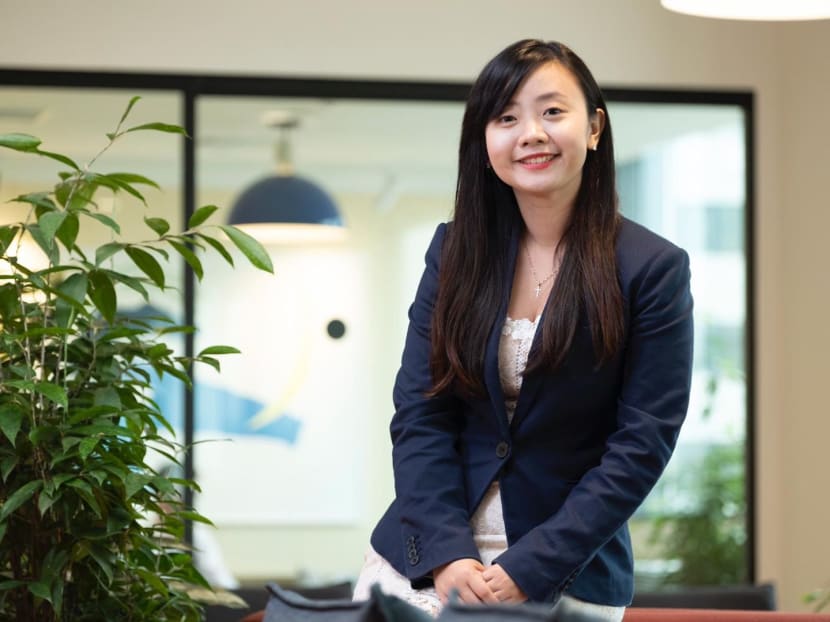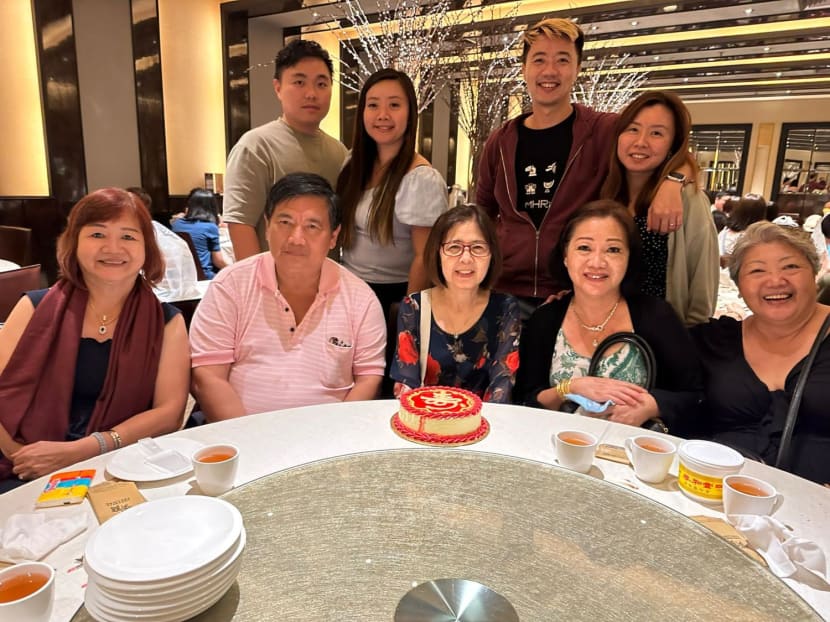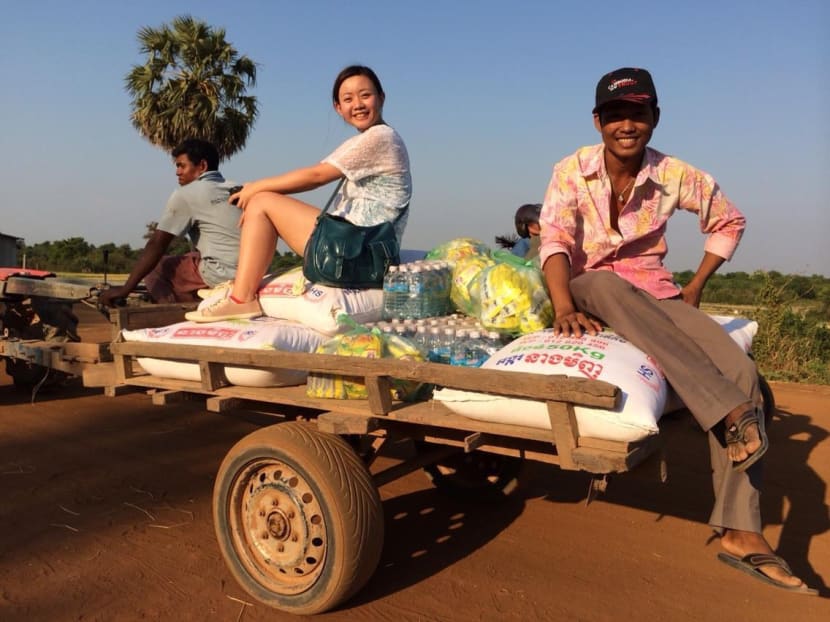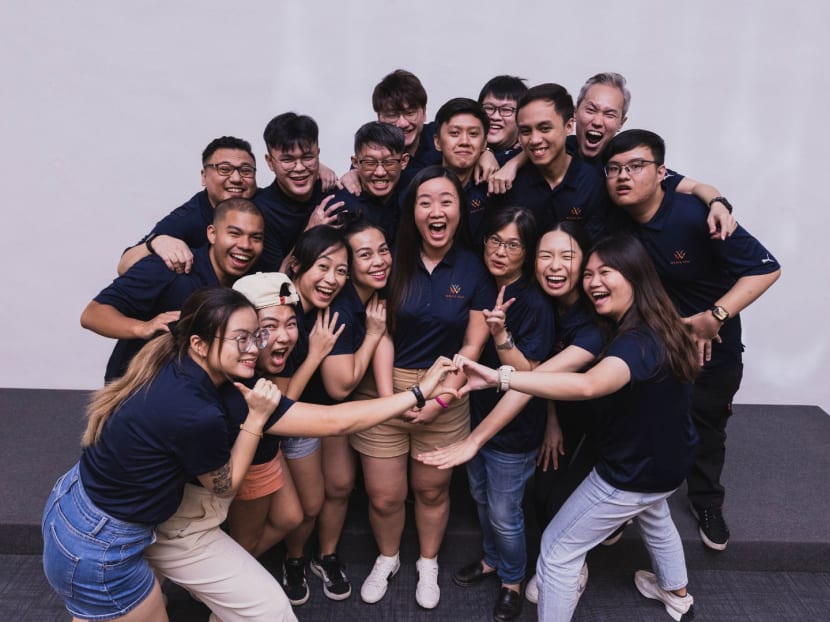Gen Y Speaks: Hustling too hard led me to burn out at 26. Now I know there's no prize for being 'the busy one'
I always thought that doing well in school meant making my parents happy. As such, exam periods were very stressful, and I would often burn the midnight oil revising. This work ethic carried on into my professional life when I became a working adult.

Tan Wan Ting, the 33-year-old founder of digital marketing agency Weave Asia, says she made it a point to balance her team's workload to prevent them from overworking like she used to.

This audio is AI-generated.
Growing up, my parents were loving but demanding.
My father was a private tutor who had quit his full-time job in the optical industry so that he would have more time for us. Every night, after giving tuition, he would tend to our homework. During exam periods, we would have daily intense revision sessions with him.
My homemaker mum is a perfectionist who took excellent care of our home and was always on top of our studies. Upon receiving our exam results, she would always sit down with us to go through our wrong answers, instructing us to try again until we got them right.
My older sister and I always thought that doing well in school meant making our parents happy. Exam periods were very stressful for us, and we would often burn the midnight oil revising.
As much as we wished that our parents were more lenient, we’re grateful. Without them, we wouldn’t be who we are today.
But this work ethic carried on into our professional lives when we became working adults.

JOINING THE CULT OF HUSTLE
I started working part-time at 14, doing sales administration for an apparel retailer.
While pursuing my business degree at Nanyang Technological University, I waitressed in a campus cafe and spent my weekends giving maths and science tuition to secondary school students.
Upon graduating at 22, I started my first full-time job in a digital marketing agency. At the same time, I worked part-time on weekends in a bar to earn extra cash.
For four years, I spent all my weekdays working my full-time job, and all my weekends working my part-time job. I was so tired all the time and would suppress my feelings and thoughts that till today, this period of time is just a blur in my memory.
This company had a very rigid culture. We were expected to be in the office and working already by 8.30am every day. Job training was provided only on the first day; beyond that, we had to be proactive in improving our own knowledge and skills on our own time.
I really did enjoy the job, but it wasn’t easy. I spent many days working till almost midnight, skipping dinner. Being less experienced, I would often have to put on a brave face to deal with particularly disgruntled clients before going to cry in the bathroom afterwards.
But that’s how it was in 2013. There was no such thing as “work-life balance” or “mental health awareness”. Working late meant you were pulling your weight; clocking out right on time told others you were lazy.
I would carry my laptop with me all the time, even to family and friends’ gatherings and birthday celebrations — “just in case”.
“Hustle culture” was my whole life, ingrained in me from childhood. I felt like I needed to always be productive. If I took some time to “just chill”, I would feel guilty for not spending my time “wisely”.
More than a mindset, hustling soon became the measure of my self-worth. Only working hard and spending my time on work or productive things to better myself made me feel worthy and valuable as a person.

After four years of long hours, little sleep and being “too busy” all the time, I was exhausted and burnt out.
I quit my job and took some time off to travel and learn more about myself: What I like to do, who I am and want to be, and how to better make a difference in my life and the lives of those around me.
I spent three months backpacking through Vietnam and Cambodia. Along the way, I learned that I am more capable and independent than I thought.
Experiencing cultures so different from Singapore’s also taught me that slowing down doesn’t mean stagnation. In fact, slowing down gives me a better, clearer perspective of my life and how I spend my time.
Armed with a renewed sense of purpose, I returned to Singapore and decided to start my own company.
REINVENTING WORK CULTURE
If you have spent any time in the advertising, marketing and public relations world, you’ll know that the phrase “agency life” is often uttered with a certain tone of knowing resignation: There’s no “life”, just “agency”.
When I started my own agency in February 2017, my main objective was to ensure that my team wouldn’t have to go through what I did.
Instead of overworking everyone, I make it a point to prioritise the strategic balance of our workload, and to share challenges and opportunities fairly among the team.
During hiring interviews, I always ask potential employees what they want to achieve in their long-term career goals. Rather than lead by fear and intimidation, as I was led, I do my best to support them to reach their objectives.

Company culture is no longer something to be imposed, but to be created and cultivated together as a team.
I don’t believe I am perfect at motivating my team, but I am always learning and looking for ways to be better as the company grows.
LEARNING TO WORK, NOT OVERWORK
In the last six months, I have been to two friends' funerals. A third friend recently fell sick and is on extended leave from work.
These have made me reflect a lot on how the last 12 years that I spent hustling have often led to me neglecting myself and my loved ones.
I was always known as “the busy one”. After long days of meetings, networking, sales meetings, handling objections, conflicts and other difficult conversations, the only thing I want to do is to sleep.
We’ve all heard the conventional wisdom on time management, but in recent years, I have been learning that energy management is equally important. There is a finite number of hours in each day, but we all have finite levels of energy, too.
There is no badge of honour for the most overworked individual — something that I struggled to grasp, especially as an entrepreneur.
I’m not there yet, but I’m slowly relearning that my self-worth is not measured by my work and being super busy and productive all the time.
Hiring the right people with the right values and work ethic has been a great help, enabling me to delegate different tasks and responsibilities so I can commit my personal resources to the bigger picture.
I’m also making it a point to decompress and recharge by spending quality time with my husband, family and friends.
Driving at top speed all the time can get you where you want to go, but even the best of race-car drivers must stop to refuel and refill their tanks. Only by being fulfilled myself, can I pour that energy onto others around me.
ABOUT THE AUTHOR:
Tan Wan Ting, 33, is the founder and marketing director of Weave Asia.








